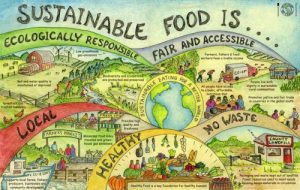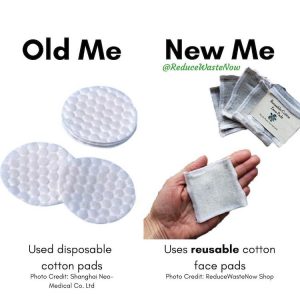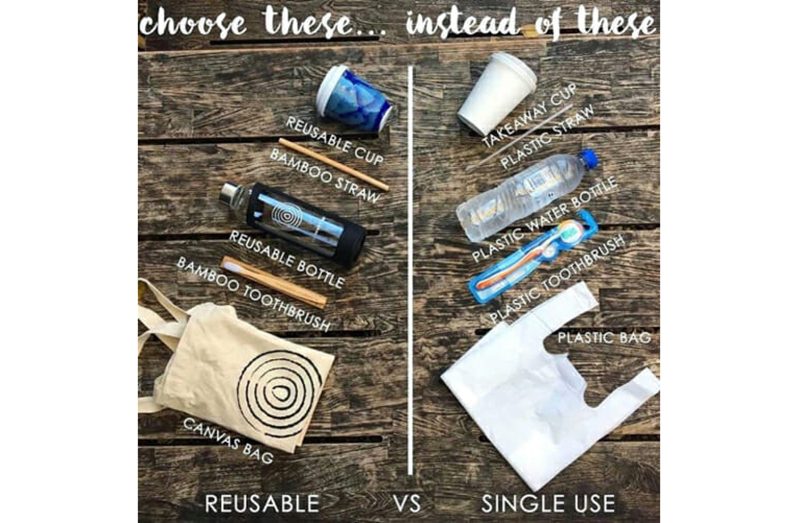BY now, you would have already cemented your New Year resolutions – make room for a few more if those do not include eco-friendly living. “It’s imperative that we rethink our culture in order to help mitigate the devastating effects of climate change. But, where to start? The changes that need to be made can seem overwhelming, but with some simple adjustments, you can help do your part for the environment.”
Here are a few old habits to leave in 2020
Time to be done with single-use plastics
At the rate we are polluting the ocean with around 12.7 million tonnes of plastic a year, the damage we are doing to marine life and our ecosystem is becoming irreparable. Our actions over the next 10 years will determine the state of the ocean for the next 10,000 years to come. It’s long past time to ditch single-use plastics and opt for reusable items instead – options are becoming more affordable, and stylish to boot, from bamboo straws to customised metal water bottles, and mason jars as mugs for that cup of coffee at the office.
Beauty in the environment
 As of recent, global beauty and clothing brands are becoming more eco-conscious. Before making your next makeup and clothing purchases, check to see if your favourite brand is making an effort to be friendly to the Earth. Oh, and skip the face washes with micro-beads. If you haven’t heard the news yet, microbeads are tiny pieces of plastic frequently used in cosmetic and cleansing products, less than 5mm in diameter. They are found in kinds of toothpaste, shower gels, defoliants, body-washes, face scrubs, detergents, cleansing agents, sun-screens, scouring agents and synthetic fibres in clothing. There are about 100,000 microbeads in a face-wash product. A single shower can result in 100,000 plastic particles entering the ocean, according to one estimate – the number that gets washed down plugholes in the United States alone every day has been calculated at about 808 trillion. They get eaten by tiny plankton and work their way up the food chain where they have been found in the stomachs of large fish and fish-eating birds. In addition to this, you should opt for reusable, washable facecloths instead of the cotton pads.
As of recent, global beauty and clothing brands are becoming more eco-conscious. Before making your next makeup and clothing purchases, check to see if your favourite brand is making an effort to be friendly to the Earth. Oh, and skip the face washes with micro-beads. If you haven’t heard the news yet, microbeads are tiny pieces of plastic frequently used in cosmetic and cleansing products, less than 5mm in diameter. They are found in kinds of toothpaste, shower gels, defoliants, body-washes, face scrubs, detergents, cleansing agents, sun-screens, scouring agents and synthetic fibres in clothing. There are about 100,000 microbeads in a face-wash product. A single shower can result in 100,000 plastic particles entering the ocean, according to one estimate – the number that gets washed down plugholes in the United States alone every day has been calculated at about 808 trillion. They get eaten by tiny plankton and work their way up the food chain where they have been found in the stomachs of large fish and fish-eating birds. In addition to this, you should opt for reusable, washable facecloths instead of the cotton pads.
Food and the environment
The production, transport, storage and other processes associated with food have a massive environmental impact, affecting water, climate, land and people. While governments and corporations have their roles to play in creating a more sustainable and equitable society when it comes to food, you as an individual have your role to play. Here a few simple things you can do in the new year (this list is not exhaustive):
* Do your best to source locally grown food, and choose fruits and vegetables that are in season;
* Make a shopping list before going to the market or supermarket to avoid buying unnecessary items;
* Store fruits and vegetables separately as the gas ether, which is released by ripening fruits can cause vegetables to rot faster;
* Cook only what you need, and don’t be afraid to use those left-overs;
* Compost kitchen and yard waste; and
* Opt for more vegetarian and vegan meals.
Practise the Rs of waste management
 According to the 5 Rs, four actions should be taken, if possible, before ‘recycling’: refuse, reduce, reuse, repurpose, and then recycle. Incorporating this methodology into your daily routine will minimize your carbon footprint.
According to the 5 Rs, four actions should be taken, if possible, before ‘recycling’: refuse, reduce, reuse, repurpose, and then recycle. Incorporating this methodology into your daily routine will minimize your carbon footprint.
Refuse: the first element of the 5 R’s hierarchy. Learning to refuse waste can take some practice, but practising this step is the most effective way to minimize waste. Refuse to buy wasteful or non-recyclable products. When working with vendors, refuse unnecessary product packaging and request reusable or returnable containers.
Reduce the use of harmful, wasteful, and non-recyclable products. Reducing dependency on these kinds of products results in fewer waste materials ending up in landfill and the associated negative environmental impacts. We recommend always using the minimum amount required to avoid unnecessary waste.
Single-use plastics have created a “throw-away” culture by normalizing consumer behaviour of using materials once and then throwing them away. The rate at which we consume plastics has become unimaginable, and the plastic crisis has become one of the world’s greatest environmental challenges (see above). Replace all of the single-use eating utensils, Styrofoam cups, water bottles, and paper plates with compostable or reusable alternatives (once you’ve used them of course).
For every item that can’t be refused, reduced, or reused, try repurposing it. This method is often referred to as upcycling. Sometimes it requires using some creativity, but the possibilities are endless.
Last but definitely not least: recycle. Once you’ve gone through all of the other R’s, recycling is the most environmentally friendly waste disposal method.
You can share your ideas and questions by sending letters to: “Our Earth, Our Environment”, C/O Communications Department, Environmental Protection Agency, Ganges Street, Sophia, GEORGETOWN, or email us at: eit.epaguyana@gmail.com, follow us on Facebook and Instagram, and subscribe to our YouTube channel.



.jpg)











